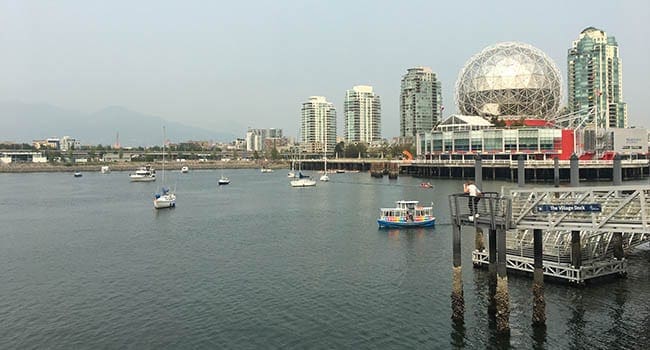 A look at Vancouver-area incomes brings new clarity to the British Columbia government’s moves to dampen the region’s red-hot real estate market.
A look at Vancouver-area incomes brings new clarity to the British Columbia government’s moves to dampen the region’s red-hot real estate market.
Recent months have seen a politically charged debate over the causes and consequences of sky-high housing prices in Metro Vancouver. The pace of price increases has been unprecedented, particularly for detached homes. In some areas, prices have more than doubled in value in five years.
In late July, the B.C. government acted to throw cold water on the market by imposing a dramatically higher property transfer tax on purchases of residential real estate by foreign nationals and foreign corporate entities. The 15 percent property transfer tax came into effect on Aug. 2. For now, it only applies to transactions completed in Metro Vancouver.
It remains to be seen whether it will dampen housing demand.
In the meantime, it is wise to remember that assessing housing affordability involves more than simply tracking prices. It is also necessary to consider the level and trend in incomes. Unfortunately, when we examine the incomes of most Greater Vancouver residents against the backdrop of sharply escalating housing prices, the picture isn’t reassuring.
Statistics Canada just published a fresh batch of data on incomes across the country, including all of the major metropolitan centres. Looking specifically at census families – married or common-law couples with or without children at home, lone parents with one or more dependent children – the agency provides estimates of median total income. Total income is that before tax. The median is the exact midpoint of the distribution: half of households have incomes above and half below the median. It’s a useful tool to gauge the financial well-being and spending capacity of individuals and families.
How do Canadian cities fare? Statistics Canada reports median family income for 27 census metropolitan areas. At $76,040 in 2014, Greater Vancouver ranks in the bottom quarter, almost $3,000 below the Canadian benchmark. The table lists the top seven and bottom seven Canadian metro areas, based on median total income for all census families. It should be noted that unattached individuals are not included in the definition of census families.
The gaps between the best and worst performers are substantial. Top-ranked Calgary outpaces Vancouver by almost 40 percent in median family income. With the recent energy sector downturn, Calgary’s stellar results are sure to lose some of their lustre in the next few years but it enjoys a strong starting position. Vancouver also lags far behind Ottawa, Edmonton, Regina and Saskatoon.
Of interest, Greater Victoria enjoys a $10,390 advantage over Metro Vancouver in median pre-tax family income, reflecting the concentration of public sector jobs in the provincial capital.
Somewhat surprisingly, B.C. is home to two of the country’s least prosperous urban areas – Vancouver and Abbotsford-Mission.
Greater Vancouver’s lacklustre showing on incomes takes on added significance in light of the region’s unusually high housing costs. The big cities of Montreal and Toronto also score poorly on median incomes, but have less costly housing. Housing prices in the Vancouver area are the steepest in the country and compare unfavourably with those in all other Canadian urban communities.
The juxtaposition of expensive housing and mediocre incomes has added fuel to the fire of the debate over housing affordability and the role of “foreign money” in driving up housing prices in the Lower Mainland.
In this situation, it is perhaps not difficult to understand why the B.C. government judged it necessary to step into the fray with a punitive tax that is explicitly intended to reduce foreign demand for residential real estate.
Median total census family income, $2014: Best and worst performers
| Top seven cities | |
| Calgary | $104,530 |
| Ottawa | $102,020 |
| Edmonton | $101,470 |
| Regina | $96,080 |
| St. John’s, Nfld. | $94,060 |
| Saskatoon | $93,400 |
| Greater Sudbury | $87,450 |
| Bottom seven cities: | |
| Vancouver | $76,040 |
| Toronto | $75,270 |
| Montreal | $75,010 |
| Sherbrooke, Que. | $72,070 |
| St. Catharines, Ont. | $71,830 |
| Abbotsford/Mission | $70,590 |
| Trois-Rivieres, Que. | $70,010 |
Jock Finlayson is executive vice-president of the Business Council of British Columbia.
Jock is a Troy Media contributor. Why aren’t you?
The views, opinions and positions expressed by columnists and contributors are the author’s alone. They do not inherently or expressly reflect the views, opinions and/or positions of our publication.


